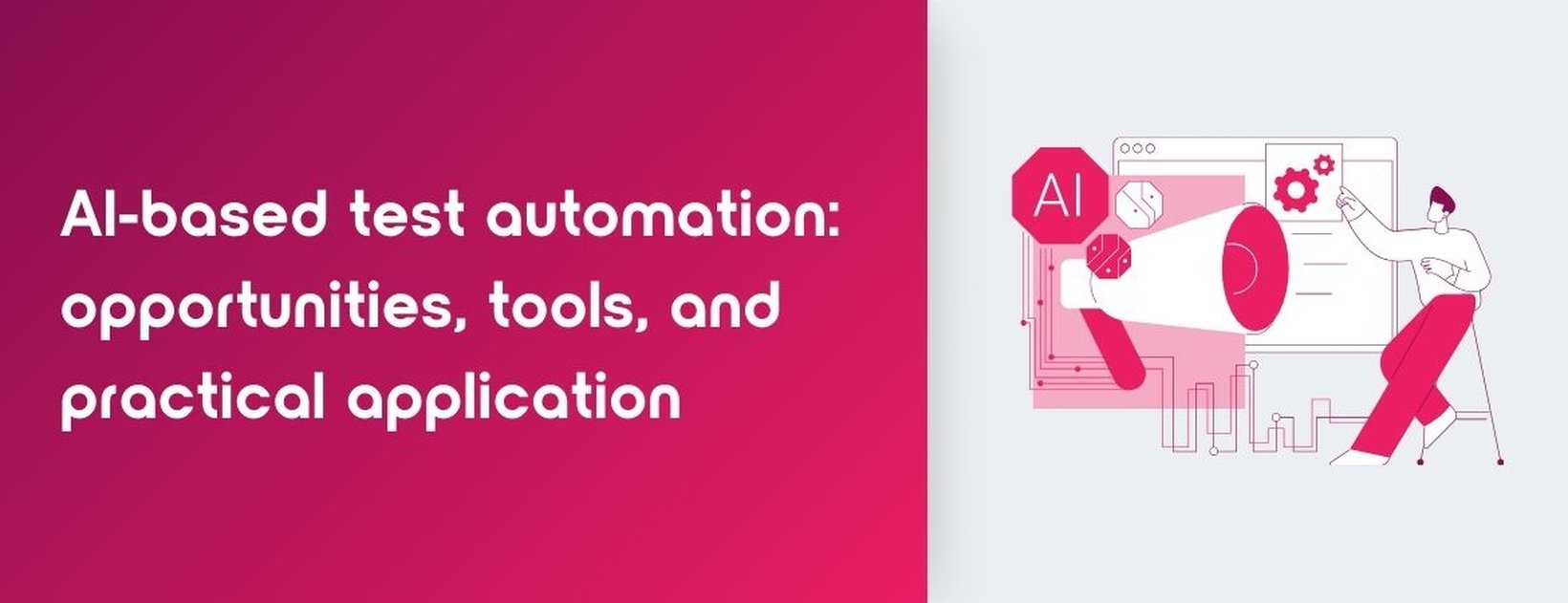AI is revolutionizing software testing by automating test design, execution, and optimization—making testing faster, smarter, and more efficient.
What does AI in test automation mean?
AI-based test automation refers to the use of artificial intelligence (AI) to improve, extend, or automate traditional software testing. Unlike conventional test automation, where test scripts must be created and maintained manually, AI analyzes vast amounts of test data, detects patterns, continuously learns, and can make autonomous decisions.
For example, machine learning algorithms prioritize test cases or predict potential defect sources. The result: faster, smarter tests with a higher degree of automation.
Application areas of AI in software testing
Test case generation & test data management
AI can automatically derive relevant test cases from requirements, user stories, or code and generate suitable test data. This significantly reduces manual effort and improves test coverage.
Prioritization and risk assessment
By analyzing historical bugs, code changes, and usage statistics, AI evaluates which tests cover the highest risk areas and prioritizes them for the next test run.
Anomaly detection & defect prediction
With AI, anomalies in system behavior can be detected earlier. Regression testing becomes more targeted, exploratory testing more efficient, and defect detection faster and more precise.
Benefits and challenges of AI in test automation
Increased efficiency and test coverage
Automated processes and intelligent decision-making accelerate test cycles and extend coverage for complex application scenarios.
Reduction of manual effort
AI not only automates execution but also the creation and maintenance of test scripts. This saves time and reduces staffing needs.
Transparency, interpretability, trust
A major challenge remains: How can the decisions of an AI system be explained transparently? Test managers must determine when results can be trusted and when human review is indispensable.
Tools & platforms compared
Market overview and evaluation
The market for AI test automation is growing rapidly. Tools such as Testim, Applitools, Functionize, aqua cloud, or Tricentis offer different areas of focus:
Tool | Focus | Strengths |
| Testim | UI test automation | Self-healing tests, JavaScript support |
| Applitools | Visual testing | Visual AI, regression testing |
| Functionize | Low-code test automation | Natural language processing, scalability |
| aqua cloud | End-to-end testing | AI-powered test planning, test data management |
| Tricentis | Enterprise testing | Risk-based testing, CI/CD integrations |
Key criteria for tool selection
● Integration with existing toolchains (CI/CD, DevOps)
● Support for relevant programming languages
● Scalability and maintainability
● Transparency of AI decisions
● Usability & learning curve for teams
AI and continuous testing working together
Integration with DevOps & CI/CD
AI test automation unleashes its full potential when combined with continuous testing. Integrated into CI/CD pipelines, it enables ongoing quality assurance with every code change. Anomalies are detected in real time, and tests are dynamically adapted.
Automation strategy of the future
The future lies in combining human expertise with AI-driven speed. Teams should pursue a hybrid testing strategy that blends exploratory testing, automated regression testing, and intelligent defect prediction.
Conclusion: How to integrate AI into your test strategy
Summary of benefits
● Higher degree of automation and test coverage
● Faster feedback cycles
● Less manual maintenance of test scripts
● Intelligent decision support in the testing process
Recommendations for first steps
- Current state analysis: Identify bottlenecks in test automation.
- Tool selection: Start a pilot project with an AI-powered tool.
- Qualification: Train staff in new methods (e.g., ISTQB® AI Testing Extension).
- Change management: Build trust, make successes visible.
Trendig supports you as an expert in modern QA with consulting, training, and practical strategies on your way to AI-based test automation.
Want to learn more about how generative AI can make your work more efficient?
Explore our trainings on AI in software development or contact us for a customized workshop on AI integration!
FAQ: AI-Based Test Automation – Opportunities, Tools & Practical Questions
What is AI-based test automation?
The use of artificial intelligence to automate the planning, execution, and optimization of software testing.
What are the benefits of AI in test automation?
Increased efficiency, higher test coverage, reduced manual effort, intelligent prioritization.
Which tools are available for AI-powered testing?
Examples include Testim, Applitools, Functionize, aqua cloud, and Tricentis.
How does AI-based test automation differ from traditional methods?
AI can dynamically learn from data, make automated decisions, and adapt tests on its own.
What challenges does AI bring to software testing?
Transparency, explainability of decisions, trust in AI, and team upskilling.
How do I get started with AI in test automation?
Through a needs assessment, a pilot project, suitable tools, and training such as the ISTQB® AI Testing Extension.
